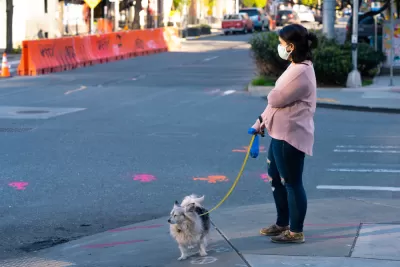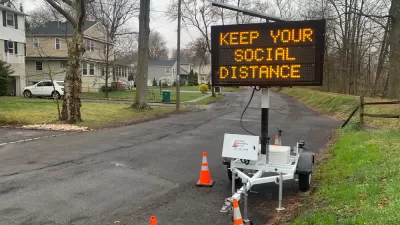On the day before America reached the grim milestone of four million COVID-19 cases, with one million added in the last 15 days, Anthony Fauci shared views on where the nation is headed in the pandemic.

Dr. Anthony Fauci, the director of the National Institute of Allergy and Infectious Diseases since 1984 and a member of the White House coronavirus task force, participated via video link in the TB Alliance Fighting Pandemics: 2020 and Beyond one-hour webinar on Wednesday. The Washington Post reported on Thursday on the accelerating spread of the coronavirus in the U.S., illustrating exponential growth:
The rapid spread of the virus this summer is striking, taking just 15 days to go from 3 million confirmed cases to 4 million. By comparison, the increase from 1 million cases to 2 million spanned 45 days from April 28 to June 11, and the leap to 3 million then took 27 days.
To infectious disease and public health experts, the coronavirus is "almost your worst nightmare" and "the perfect storm," Fauci told Betsy McKay of The Wall Street Journal, who moderated the Webinar for TB Alliance, a not-for-profit organization formed in 2000 to fight tuberculosis, the leading infectious cause of death in the world, killing 1.5 million each year.
Kashmira Gander of Newsweek reported on the webinar (source article).
The coronavirus has the characteristics that make infectious diseases "particularly formidable," he said. It jumped from an animal to human, no one is thought to have background immunity to it, and it's a respiratory virus, he said. It is also "spectacularly efficient at spreading" between people, and is especially deadly for the elderly and those with underlying conditions.
"We are living right now through a historic pandemic outbreak," Fauci said. "We are right now in a situation where we do not see any particular end in sight..."
The name of the virus is SARS-CoV-2, named after the earlier novel coronavirus, SARS (Severe Acute Respiratory Syndrome), that struck China in 2002, infecting 8,000 people in 26 countries, killing almost 800, through 2003. It was not declared a pandemic. It was was effectively eradicated using four public health containment measures – test, isolate, contact trace and quarantine. A vaccine was never developed.
Fauci "said he doesn't see the coronavirus disappearing like the SARS virus did, because of its ability to pass between humans," adds Gander.
But with a combination of good public health measures, a degree of global herd immunity, and an effective vaccine we can get "very good control" of it either this year or next, he said. Such measures would bring coronavirus cases down to such a low level that we won't be in this current position for an extended period of time, he said.
Never before had he seen an infection that causes such a broad range of disease from no symptoms to requiring hospital treatment and death, Fauci said.
Axios also reported on Fauci's assessment of the pandemic in the TB Alliance webinar.
Related in Planetizen:
-
Pandemic Endgame, May 18, 2020
-
Coronavirus Declared a Pandemic. What Does That Mean? March 12, 2020
FULL STORY: Fauci Says We Aren't Winning Against Coronavirus, Calls It Health Experts' 'Worst Nightmare'

Maui's Vacation Rental Debate Turns Ugly
Verbal attacks, misinformation campaigns and fistfights plague a high-stakes debate to convert thousands of vacation rentals into long-term housing.

Planetizen Federal Action Tracker
A weekly monitor of how Trump’s orders and actions are impacting planners and planning in America.

In Urban Planning, AI Prompting Could be the New Design Thinking
Creativity has long been key to great urban design. What if we see AI as our new creative partner?

King County Supportive Housing Program Offers Hope for Unhoused Residents
The county is taking a ‘Housing First’ approach that prioritizes getting people into housing, then offering wraparound supportive services.

Researchers Use AI to Get Clearer Picture of US Housing
Analysts are using artificial intelligence to supercharge their research by allowing them to comb through data faster. Though these AI tools can be error prone, they save time and housing researchers are optimistic about the future.

Making Shared Micromobility More Inclusive
Cities and shared mobility system operators can do more to include people with disabilities in planning and operations, per a new report.
Urban Design for Planners 1: Software Tools
This six-course series explores essential urban design concepts using open source software and equips planners with the tools they need to participate fully in the urban design process.
Planning for Universal Design
Learn the tools for implementing Universal Design in planning regulations.
planning NEXT
Appalachian Highlands Housing Partners
Mpact (founded as Rail~Volution)
City of Camden Redevelopment Agency
City of Astoria
City of Portland
City of Laramie





























